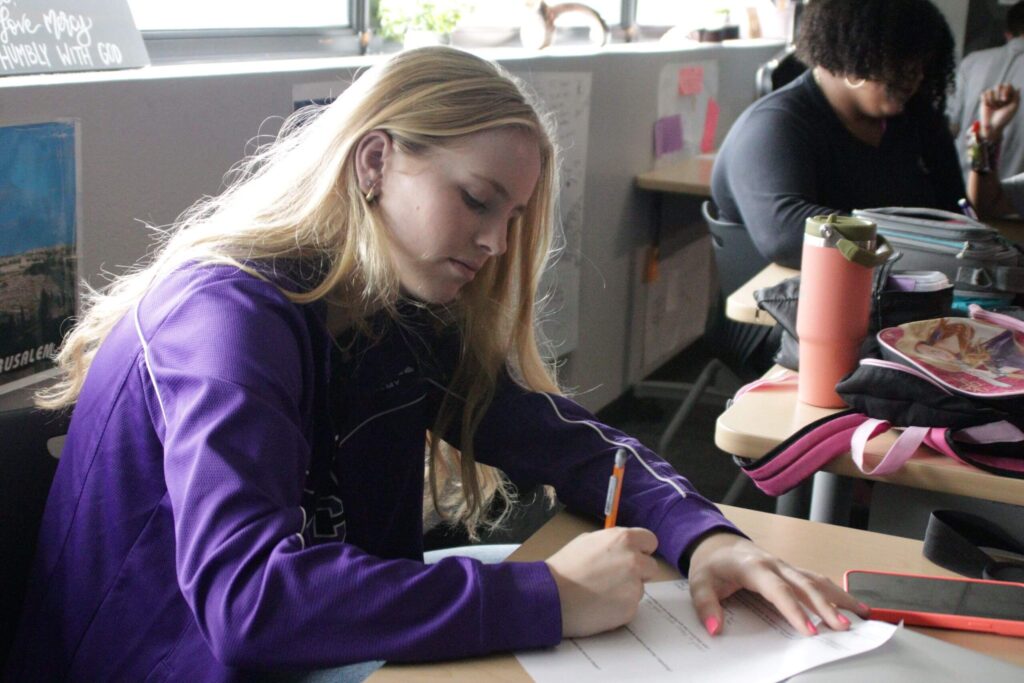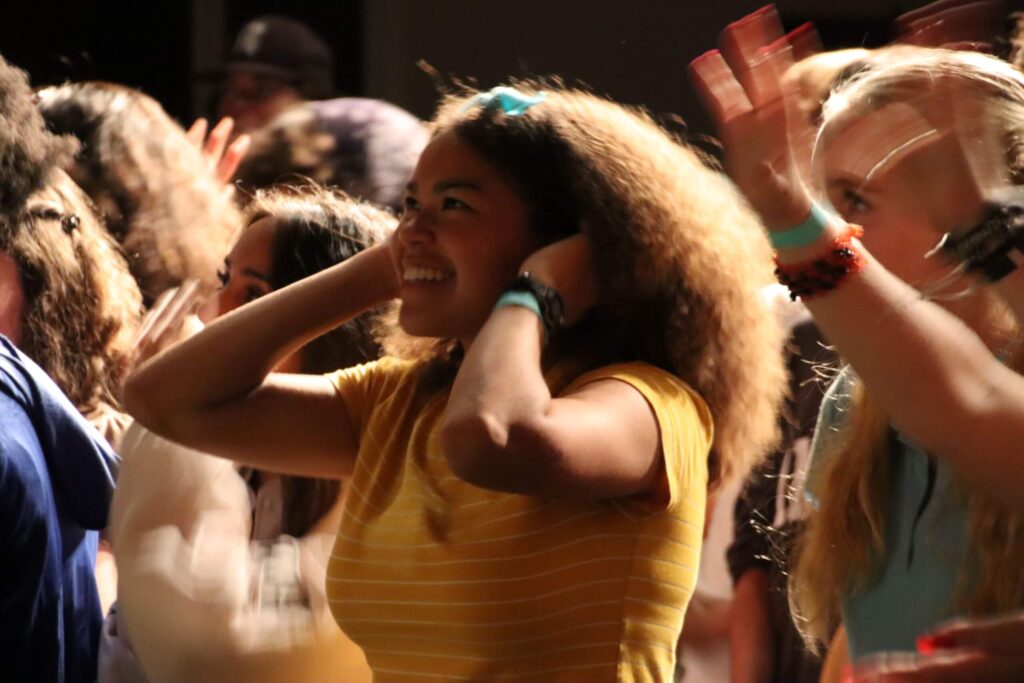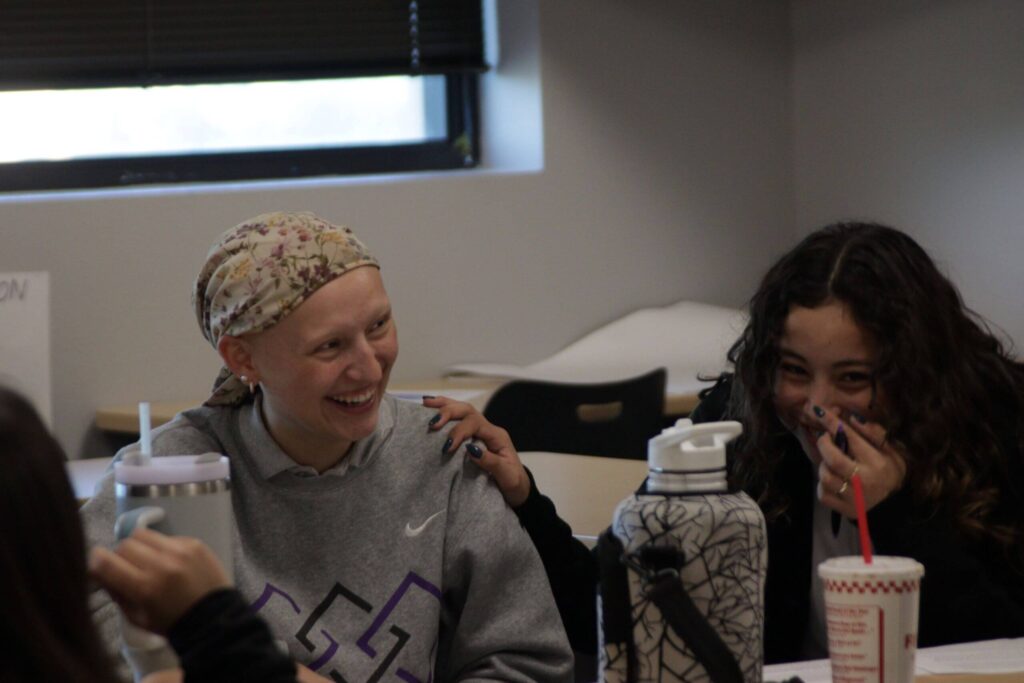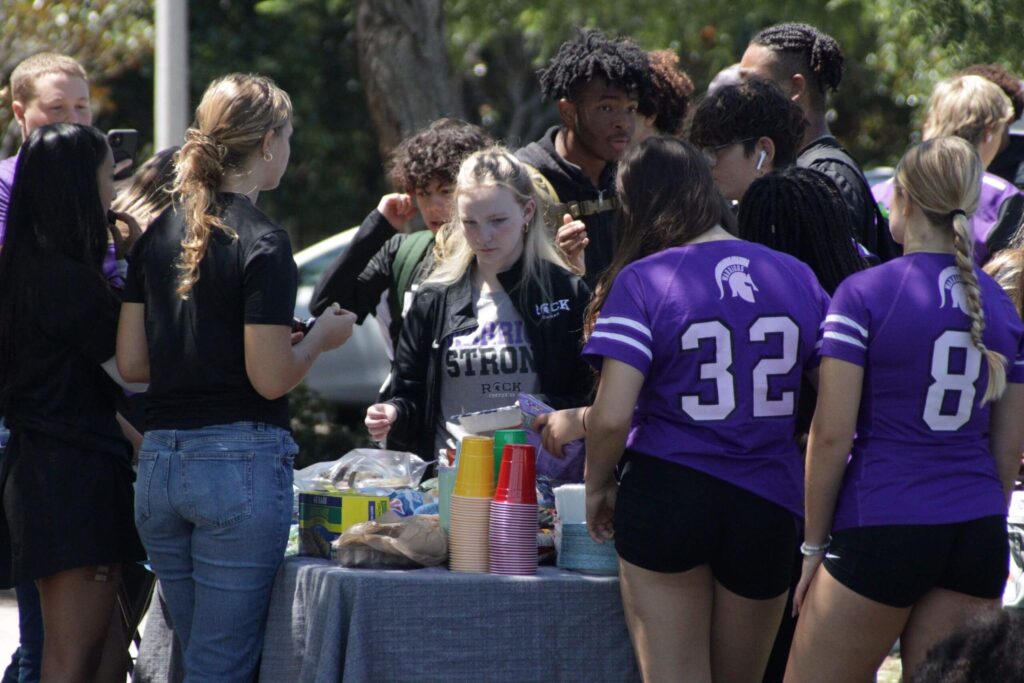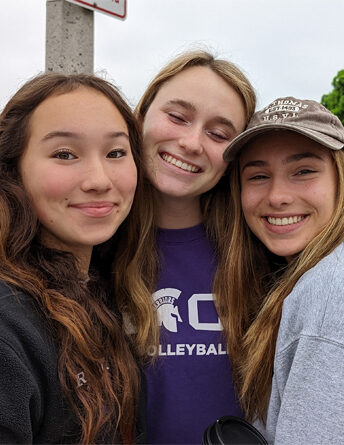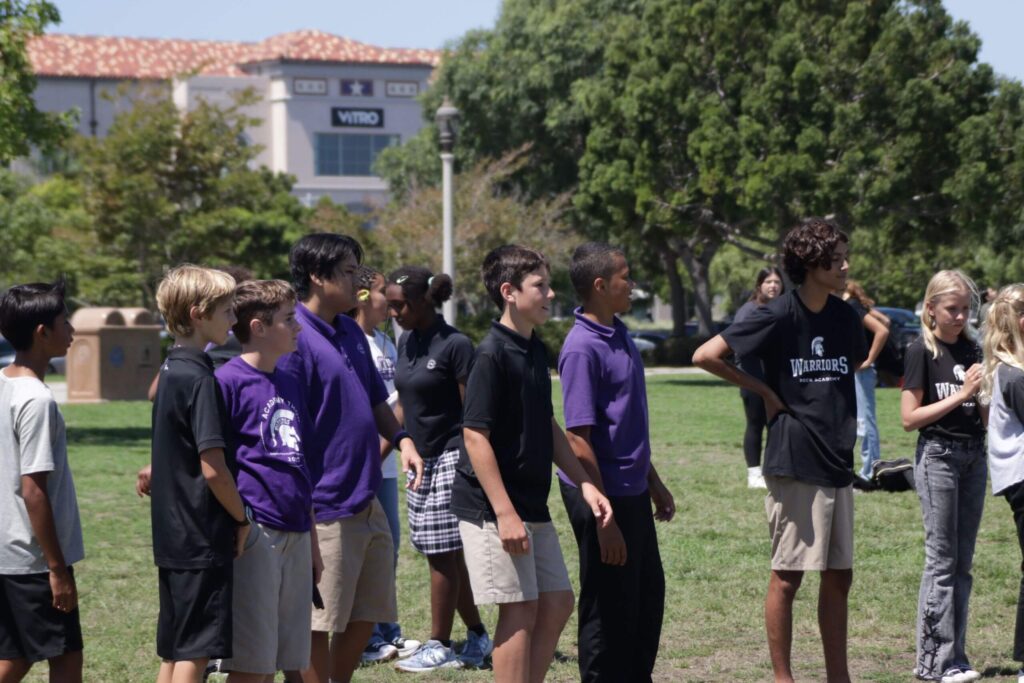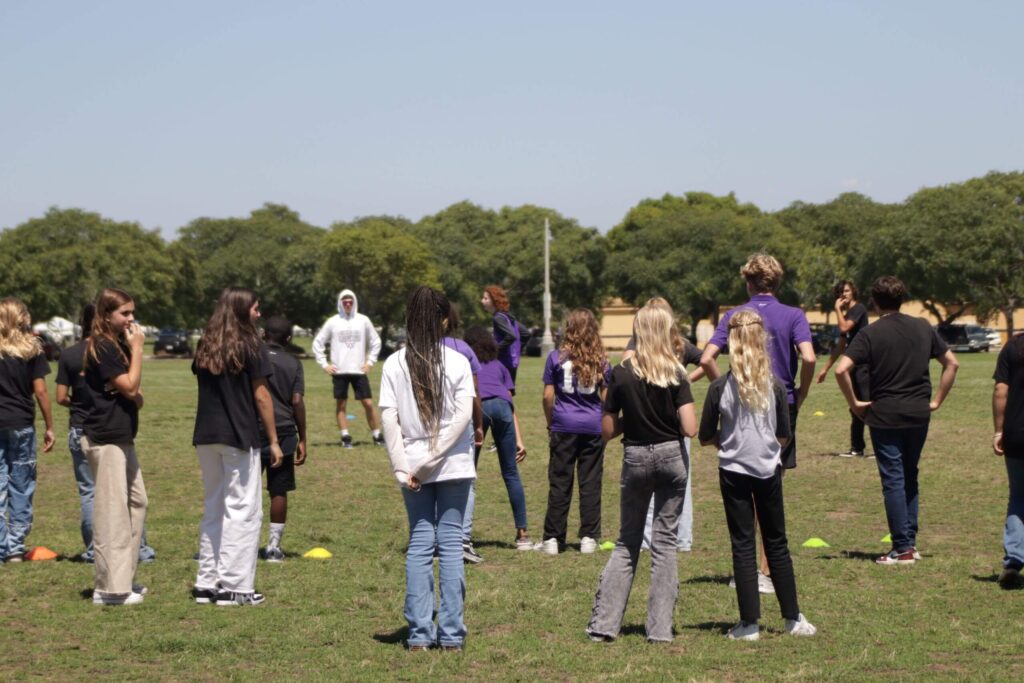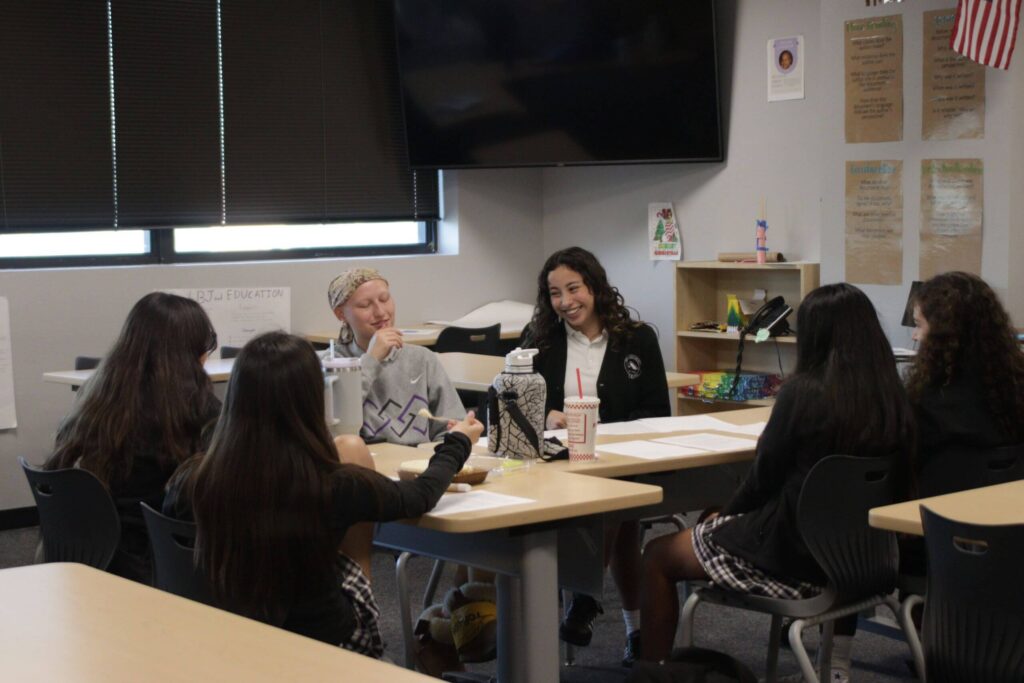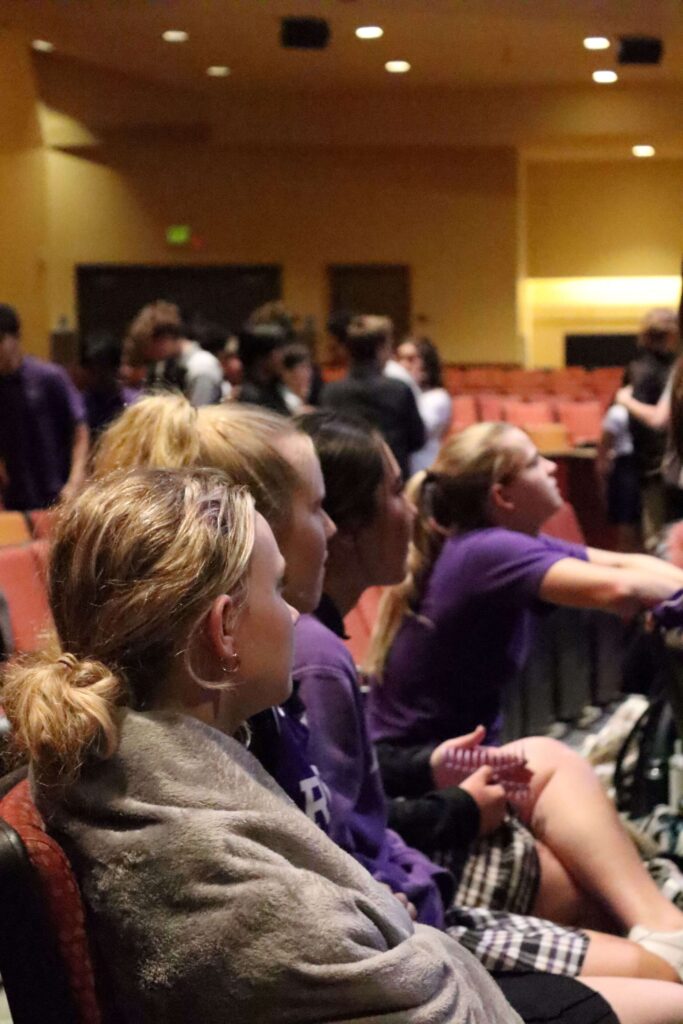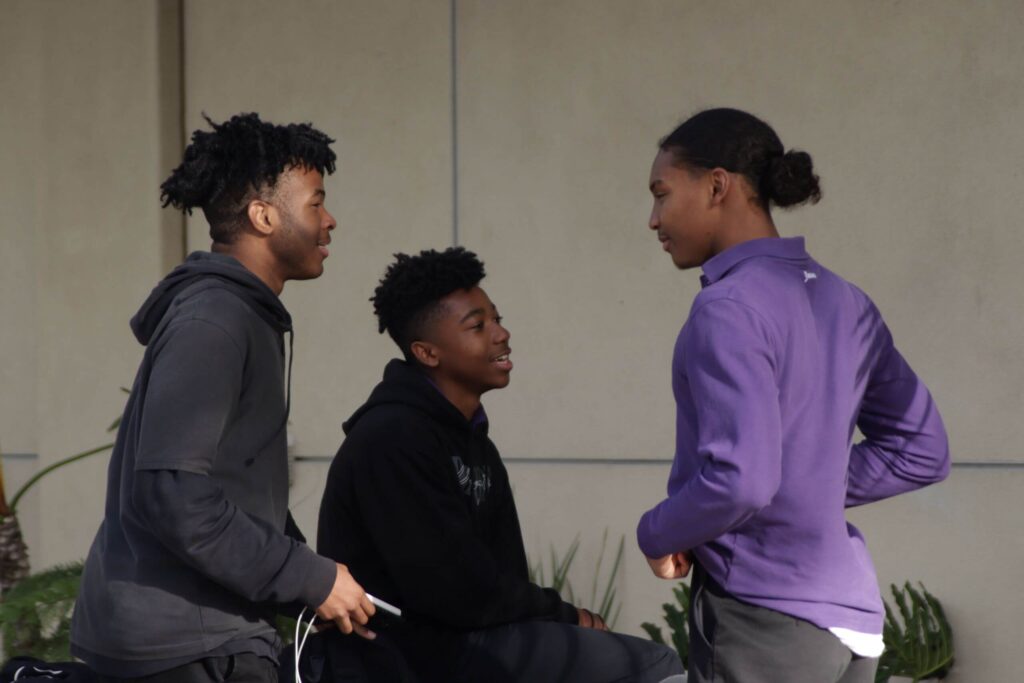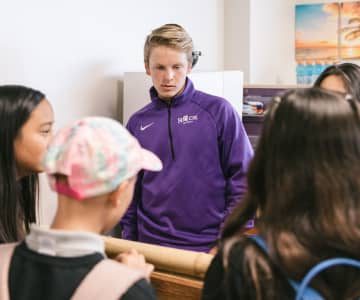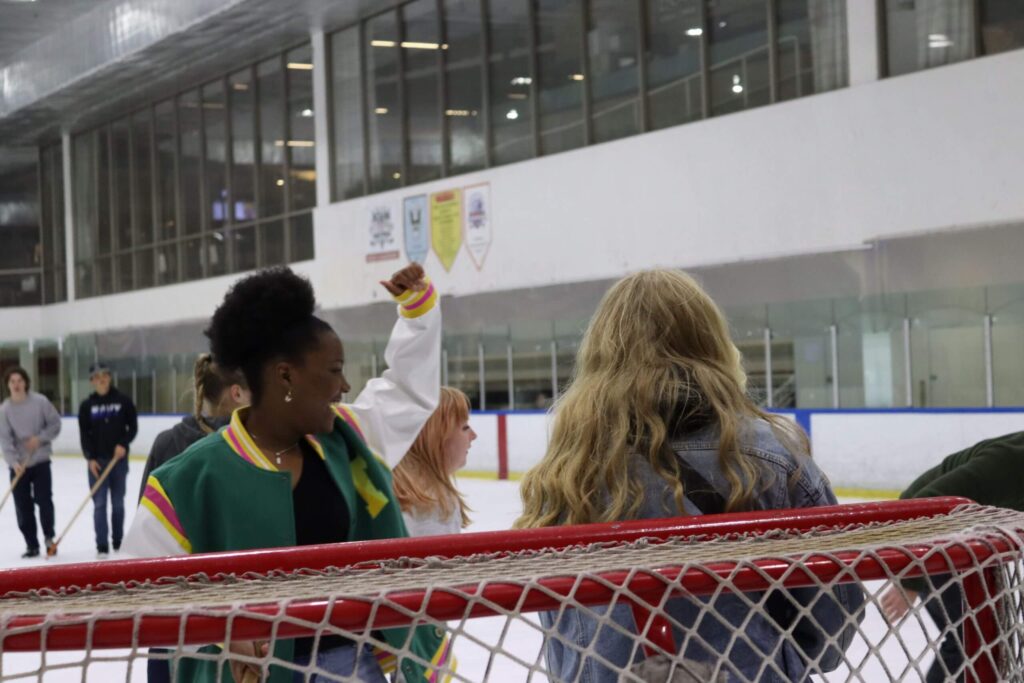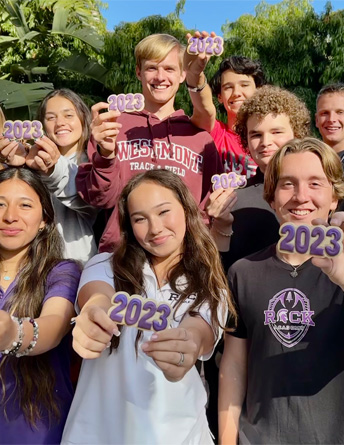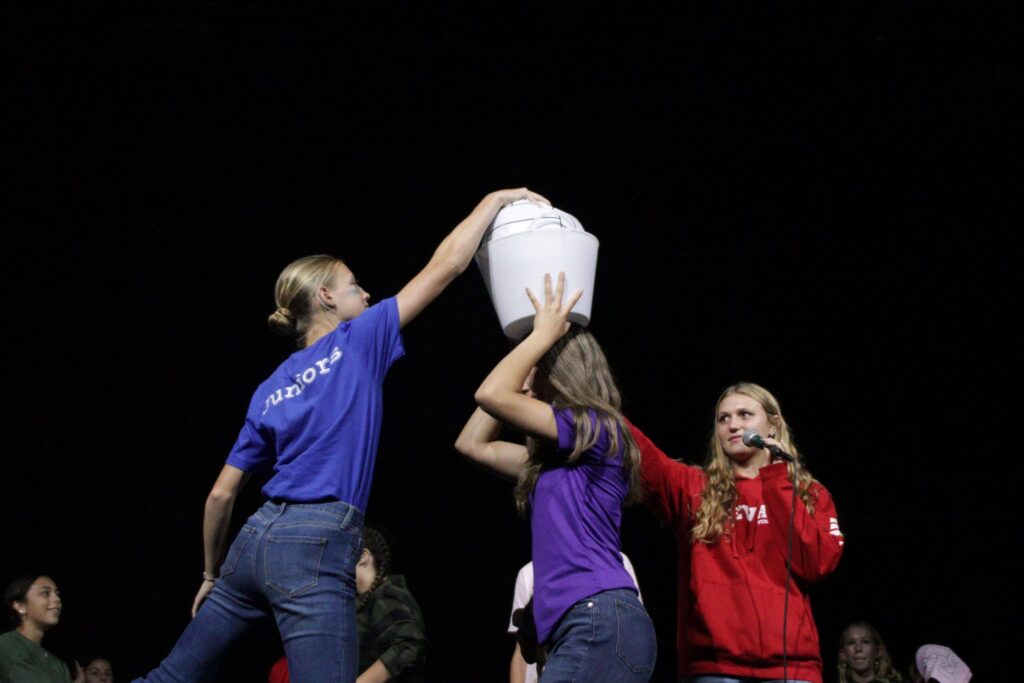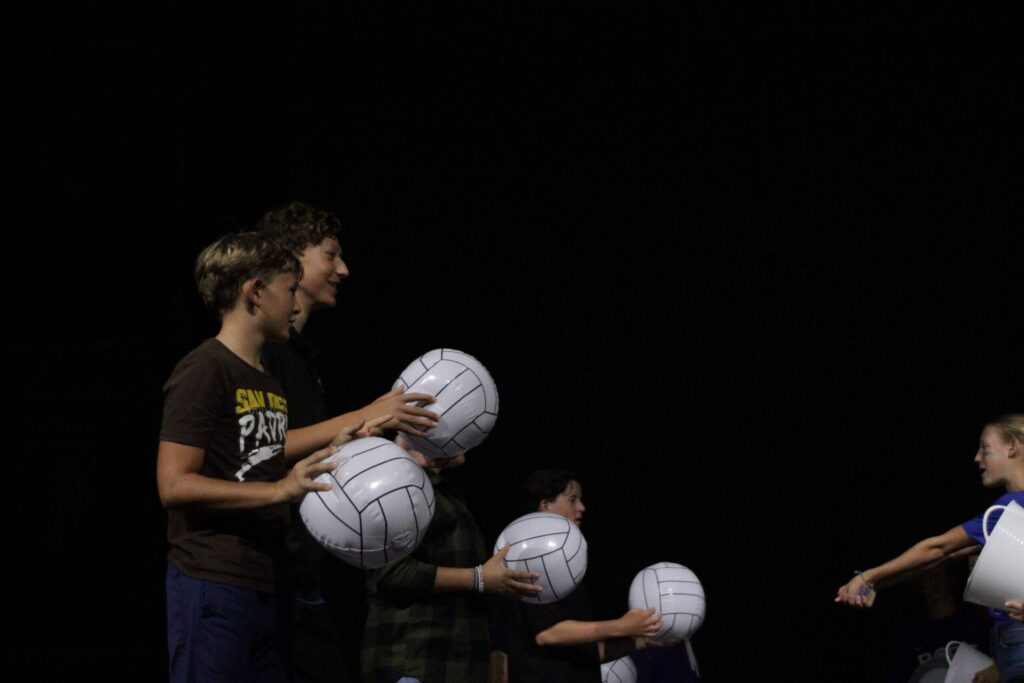Developing Leaders of Character Who Change The World
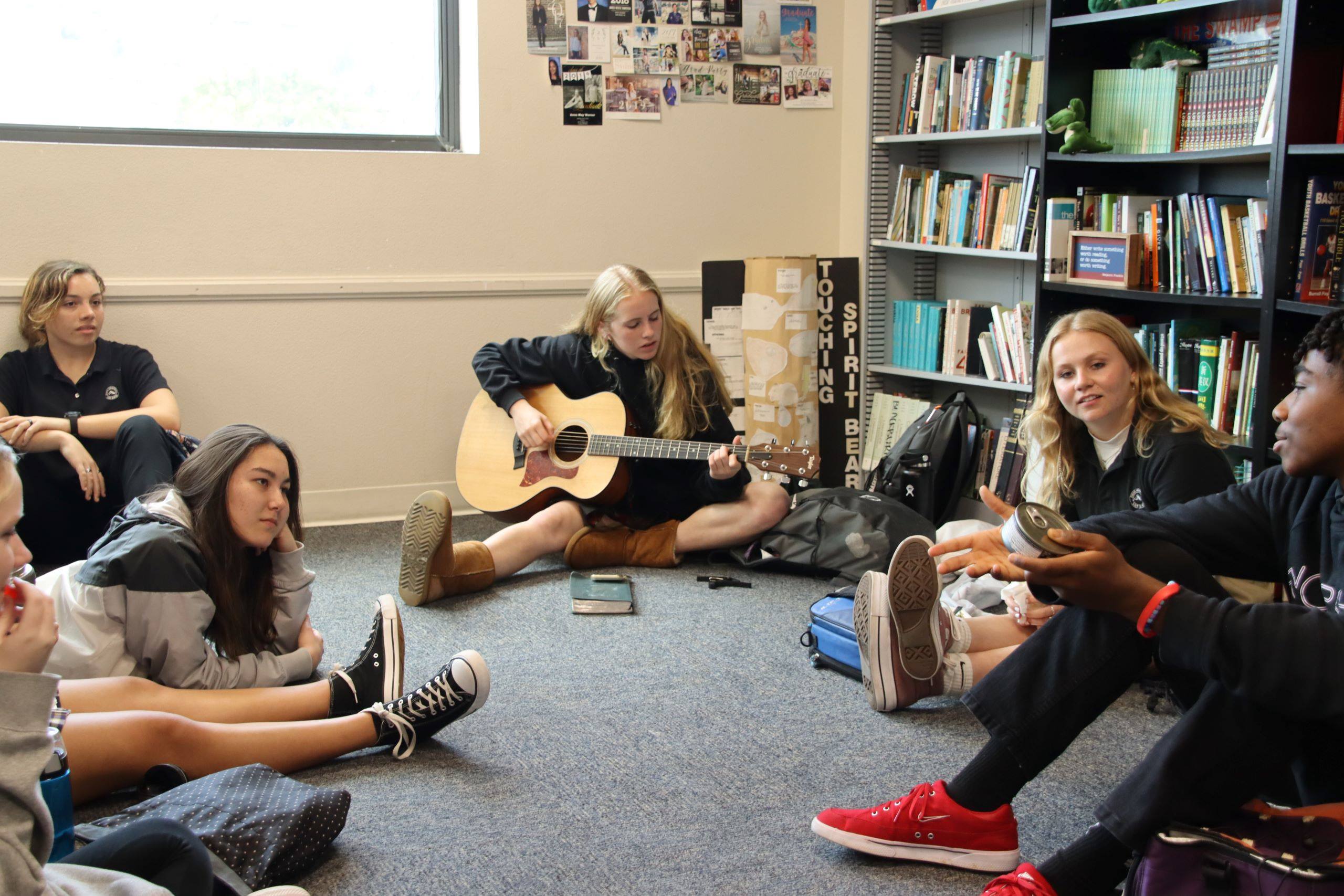
We provide students with rigorous academics in a spiritually enriching community.
At the Rock Academy High School, we combine challenging academics with a faith-focused, intentional community to develop students who not only succeed but who do so with purpose, compassion, and love for others. Students learn that God has uniquely gifted each one of them and that when they use their gifts to glorify Him, they are able to make a difference in this world for good.
An inspirational learning approach.
Our teachers are dedicated to making learning meaningful and relevant. We use various teaching strategies to draw connections across the curriculum in order to deepen our students’ understanding of the bigger picture. For example, a hands-on Calculus project will encompass mathematics, programming, design, engineering, art, writing, research in the industry, and oral presentations. We believe curiosity leads to intellectual achievement and we teach our students to ask big questions about the world around them.
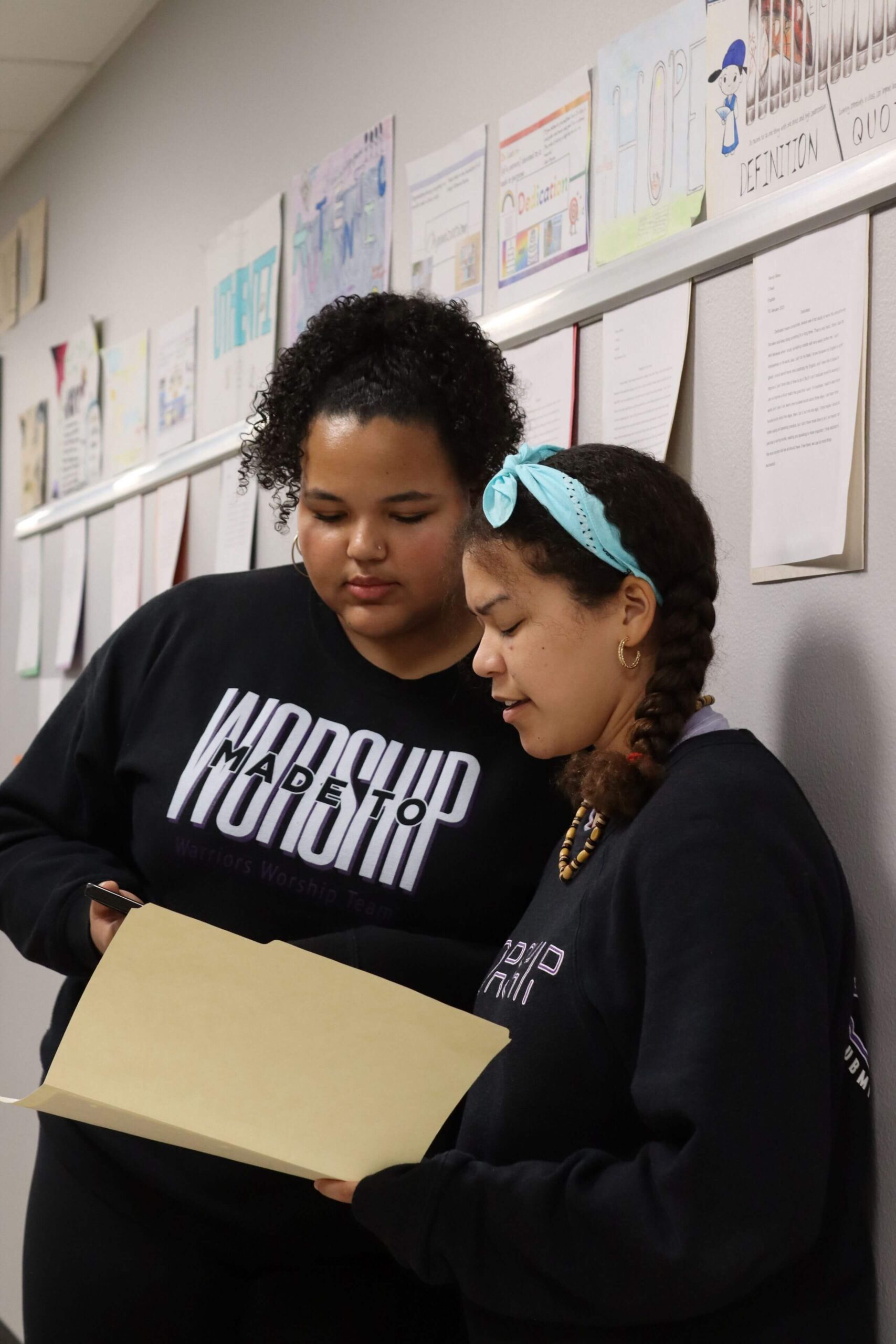
Equipping students for college.
Students begin building a comprehensive, competitive, and compelling college portfolio starting day one of our High School. The Rock Academy’s course options are designed to ensure every student is accepted to the college of their choice. Senior students culminate their high school experience with a capstone project that highlights their years of achievement. We are fully accredited by the Western Association of Schools and Colleges and our courses meet the University of California A-G course requirements.
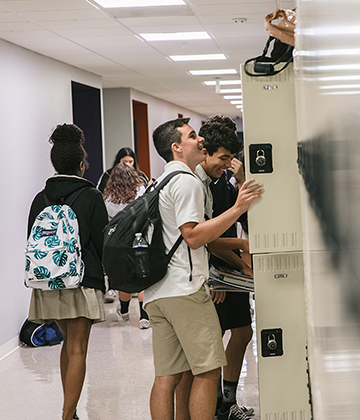
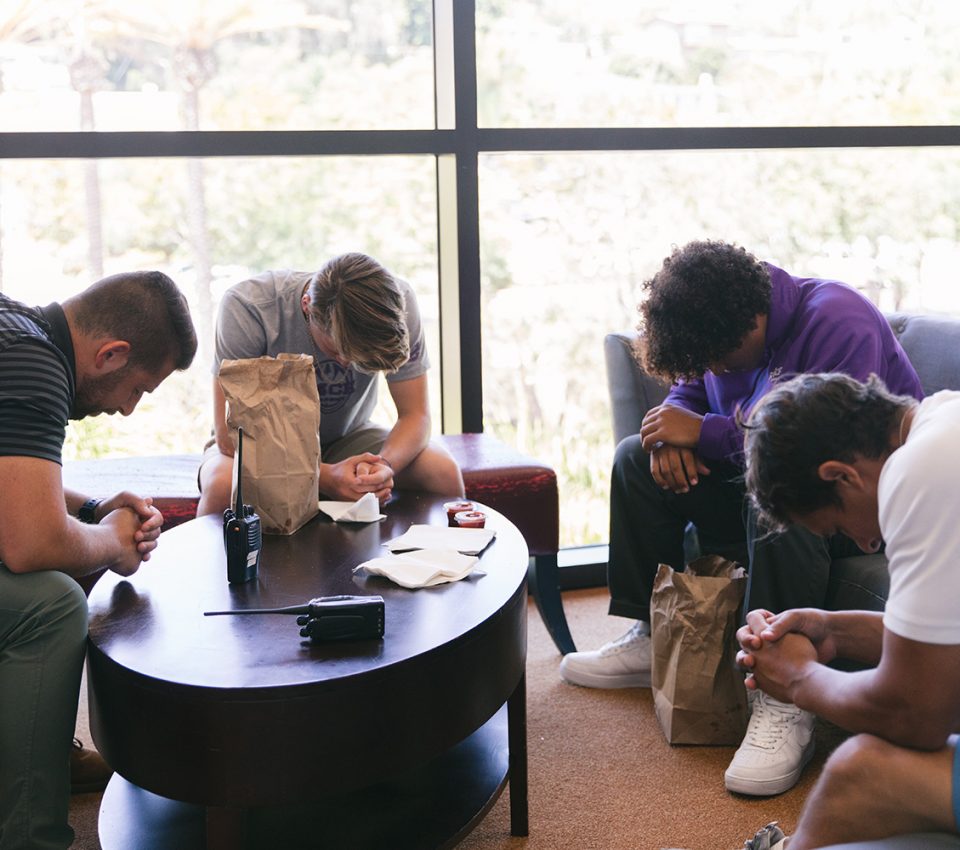
Shaping bold, confident, and compassionate leaders.
In their final years at the Rock Academy, our High School students deepen their intellectual knowledge which is firmly planted on a solid foundation of faith. They graduate with a secure understanding of their strengths and passions. With a fervor to live out their calling, and the confidence to step into positions of leadership, they go on to have significant impact in the world as they strive to make it a better place.
Interactive Learning
and Dynamic Programs
English
English I and II (Honors and Traditional) and English III are discussion-based, student-led survey courses that cover the basic styles of writing and genres of literature. Beyond academic comprehension, writing skills, and appreciation for literature, students will learn to think critically and effectively communicate their ideas and beliefs. Students will also grow in their understanding of who God is and who he has created them to be.
English IV is a discussion-based, student-led course in which students will study dystopian literature and Mere Christianity to prepare them for life after high school. Beyond academic comprehension, writing skills, and appreciation for literature, students will learn to think critically and effectively communicate their ideas and beliefs. Students will also grow in their understanding of who God is and who he has created them to be.
Advanced Placement Language and Composition is a student-led, discussion-based course in which students will study primarily non-fiction texts. The course is an introductory college-level composition course. Students cultivate their understanding of writing and rhetorical arguments through reading, analyzing, and writing texts as they explore topics like rhetorical situation, claims and evidence, reasoning and organization, and style. Beyond academic comprehension, writing skills, and appreciation for literature, students will learn to think critically and effectively communicate their ideas and beliefs. Students will also grow in their understanding of who God is and who he has created them to be.
Advanced Placement Literature and Composition is a student-led, discussion-based course which covers major authors and works from American culture, with a little Shakespeare thrown in for good measure. This course is an introductory college-level literary analysis course. Students cultivate their understanding of literature through reading and analyzing texts as they explore concepts like character, setting, structure, perspective, figurative language, and literary analysis in the context of literary works. Beyond academic comprehension, writing skills, and appreciation for literature, students will learn to think critically and effectively communicate their ideas and beliefs. Students will also grow in their understanding of who God is and who he has created them to be.
History
Ancient World History challenges students to examine the development of cultures from creation to 1400 AD. Course themes will include foundations of government and nation-building, leadership, patterns of interaction, and development and usage of technology. In addition, students will examine geography’s impact on history. The foundation for this course is thinking historically and much emphasis will be placed on reading and writing skills: causation, historical interpretation and synthesis, and the ability to craft historical arguments from primary and secondary sources. Students will participate in in-class activities such as lectures, debates, and group exercises/projects.
Modern World History challenges students to examine the development of cultures from approximately 1450 AD to the present. Course themes will include industrialization, modern nation building, colonialism, mercantilism, modern economic theories and application, the road to revolution, leadership, patterns of global interaction, and development and usage of technology. In addition, students will examine geography’s impact on history. The foundation for this course is thinking historically and much emphasis will be placed on reading and writing skills: causation, historical interpretation and synthesis, and the ability to craft historical arguments from primary and secondary sources. Students will participate in in-class activities such as lectures, debates, and group exercises/projects.
United States History will demonstrate the overall hand of God in the construction of a new nation. Students will study the major turning points in American history in the twentieth century. Following a review of the nation’s beginnings and the influence of the Enlightenment on U.S. democratic ideals, students will study global industrialization to understand the emergence and outcomes of new technology and a corporate economy, including the social and cultural effects. They will then trace the change in the ethnic composition of American society; the movement toward equal rights for racial minorities and women; and the role of the United States as a major world power. An emphasis is placed on the expanding role of the federal government and federal courts, as well as the continuing tension between the individual and the state. Students will consider the major social problems of our time and trace their causes through historical events, thus applying historical references to their own lives.
AP US History
The AP U.S. History course is designed to provide students with the analytic skills and factual knowledge necessary to deal critically with the problems and materials in U.S.history. The program prepares students for intermediate and advanced college courses by making demands upon them equivalent to those made by full-year introductory college courses. Students should learn to assess historical materials—their relevance to a given interpretive problem, reliability, and importance—and to weigh the evidence and interpretations presented in historical scholarship. An AP U.S. History course should thus develop the skills necessary to arrive at conclusions on the basis of an informed judgment and to present reasons and evidence clearly and persuasively in essay format.
American Government & Economics
This course examines the foundation of the United States Governmental system. This course includes a detailed study of the structure and function of the three branches of government, the two-party system, nominations, elections, public opinion, pressure groups, and state and local governments. This aspect of the course will explore the purpose and scope of government and how our government functions. This course also examines the free enterprise system and the language of economics and includes profiles on the lines and theories of major economists. It includes a study of the laws of supply and demand, types of businesses, labor and production, the banking system, business cycles and world trade
Bible
Foundations of Faith I is an academic curriculum and a devotional study. This course uses the textbook Dynamic Christian Living that presents both factual content and personal application material. Students should complete this course with an introductory understanding of doctrine concerning salvation, the scriptures, prayer, sharing the faith, and Spirit-filled living. Each topic will include discussions of higher theology, as well as a challenge to better reflect God’s character.
Foundations of Faith II is a course designed to take students on a journey to understand the Christian faith. Units include: how the Bible was written and what it entails, the theology of Christianity, church history, and how to have personal faith in today’s culture. Students use the textbook Missio Dei and will take part in a variety of projects throughout the year.
Bible Survey takes students on a comprehensive study of the Bible Genesis to Revelation. This class will look at the Bible as a whole and understand themes, literature, and background for each book. Materials include the Bible project videos and the Bible companion textbook. Upon completion of this course, students will be able to explain the message of each book in the Bible.
Wisdom Series will study themes in Proverbs and the New Testament. Students will learn the true, biblical definition of wisdom regarding cultural and life issues. Various materials will be used. This is a life application class with the goal of students understanding how to apply God’s wisdom in each decision through high school and beyond.
Apologetics class studies the reasoning of Christian faith, explanation of Biblical worldview, and understanding world religions. Materials used are Evidence that demands a verdict and What you need to know about defending your faith. Students will work through a variety of projects, discussions and debates.
Worship Development provides students a place to practice their musical talent while leading worship. It gives hands on experience leading services and all the behind the scenes preparations. The goal is to have students who develop and lead passionate, authentic worship done with excellence. Worship class rotates through a worship related lesson, musical practice/ service preparation. We lead worship weekly and for school events.
Math
Algebra 1 is a first-year course in Algebra that covers fundamental topics including the following: linear equations and inequalities, quadratic functions and their graphs, and linear systems of equations. The topic of word problems is also given extensive development to develop critical thinking and analytical skills. This course emphasizes on building a firm foundation for future math courses.
Geometry is an introductory course that uses the properties of common geometric figures to build the more abstract concepts of logic and reasoning. Deductive reasoning skills are developed by using theorems and definitions to develop formal proofs. The topics covered are basic plane geometry such as points, lines, and planes as well as three dimensional geometry. Properties and relationships of parallel and perpendicular lines will be covered throughout the text to build deeper understanding of the properties of triangles and other polygons and build an understanding of congruence, similarity and proportions. These topics will provide the basis of an exploration of the special properties of right triangles and basic trigonometry. An interactive classroom environment that involves student led discussions and presentations foster a deeper understanding of subject matter and sharpen communication and collaboration skills. Outdoor explorations encourage students to connect the theoretical classroom work to the world around them to encourage deeper thinking about the topics in general and to contemplate the order and grandeur of the Lord’s Creation.
Algebra 2 is a third-year Algebra course, providing a more in-depth and complete study of the following topics previously introduced in Algebra 1: linear equations, systems of linear equations and inequalities, quadratic relations, functions, powers, radicals and polynomial and rational functions. The unifying subjects for this course of advanced Algebra and Geometry are straight lines and the figures they produce. Students are also introduced to the following Pre-Calculus topics: exponential and logarithmic functions, and sequences and series, and trigonometric functions.
Pre-Calculus is intended to extend and deepen a student’s understanding of concepts previously covered in prerequisite algebra and geometry classes. It also serves as a general course in a variety of fundamental topics necessary for advancement into more specialized advanced mathematical courses such as calculus, statistics or discrete mathematics. Some of those topics of study include: mathematical relations, functions, their inverses and graphical representations in the Cartesian plane; working algebraically with functions in solving systems of equations, working with rational and polynomial functions of degree two and above as well as logarithmic and exponential functions. Trigonometry is studied in greater detail than in previous courses including the mastery of fundamental identities and algebraic solutions to equations involving trigonometric functions. Analytic geometry, vectors and linear algebra constitute another building block of the course with an introduction to complex numbers and mathematical induction rounding out the topics.
On a deeper level, it is the goal of the class to have a deeper understanding of mathematical principles that encourages application and cross curricular understanding. This will bring in interdisciplinary studies in computer programming, art, engineering and science. To bring these disciplines together, the Pre-calculus course is structured by the Project Based Learning model. Teams are learning not only the core materials but thinking creatively about application, collaborating together and communicating both difficulties and successes to achieve a common goal.
As we take the time to study mathematics, we do so as a way to better understand the infinite mind of the Creator who made all things and made us in His image so that we might, as finite beings, be able to know Him through His revelation to us, whether that is through His general revelation in nature or through His Word breathed out in the Bible.
AP Calculus is intended to give the student an introduction to the basic fundamentals of calculus and prepare the student to complete the AP Calculus AB Test. Three mathematical “Big Ideas” are brought together in this course, Limits and Continuity, Differential Calculus and Integral Calculus. These lay a foundation for greater exploration in the sciences which all depend on the tools available found in calculus. This is an exciting opportunity for students to connect processes all around them to mathematics and be challenged to think creatively about how new applications can be made. In so doing they will be delving into a deeper understanding of the beauty and wonder of the amazingly dynamic yet orderly character of God’s creation. It was after all, Newton’s need to better understand and compute the orbit of the moon around the earth that led to his development of calculus.
AP Statistics is a beginning college-level course in the methods and practice of statistics. The fundamentals of collecting, representing and most importantly understanding what inferences may be drawn from collected data are an essential part of this course. Students will learn to collect data and to design experiments so that bias is minimized and that predetermined levels of confidence in the outcome may be realized. Computational tools such as statistical calculator functions, spreadsheets and Minitab are utilized for visualization and modeling. The course is designed around the College Board’s requirements for a class carrying the title of AP Statistics and is rigorous in preparing the students for that exam. By the end of the course, students will not only have mastery for the AP exam, they will each work on a final projects which will involve them in designing an experiment, implementing their plan and conducting confidence tests on their data and presenting thoughtful inferences and conclusions while defending their choice of methodology.
Science
Conceptual Physics offers the subject matter of a traditional physics course with a qualitative approach to problem-solving. Of principal investigation are the relationships between matter and energy and how God uses them in the universe. The format includes lecture/discussion, problem solving and project completion. There are projects which demonstrate students’ mastery of course materials. General areas of study will include mechanics, motion, astronomy, heat, light, sound, magnetism and electricity.
Biology is a laboratory course that explores the interrelationships of life and the physical world around us. Central to this course is a fundamental understanding of God’s creation and the unique place humans occupy therein. Some areas of study include cellular and molecular biology, ecology, genetics, energy pathways of life, bioethics, and species diversity. Students will also become aware of science career connections. This course meets the subject area – d requirement for the UC/CSU approved course list.
Advanced Placement Biology is an introductory college-level biology course. Students cultivate their understanding of biology and God’s governance of life processes through inquiry-based investigations as they explore the following topics: evolution, cellular processes—energy and communication, genetics, information transfer, ecology, and interactions among species.
Chemistry is a laboratory based course which meets college or university requirements for entrance. It is designed to meet the needs of both the prospective science major and serious student who desires a general knowledge of the field without becoming a science major. Topics will include, but are not limited to, atomic theory, gas laws, stoichiometry, spectroscopy, elements, compounds, acids and bases, equilibrium, and the historical development of chemistry, all with a full range of laboratory work. The course also emphasizes the role of God in the creation of all matter and his governing of relationships better and within all types of matter.
World Language
Spanish 1
Spanish 1 follows our 7th grade introduction course. Students continue listening, reading, writing, and speaking Spanish. Each unit consists of a new vocabulary theme, grammar concepts, reading and listening comprehension activities along with speaking and reading activities. Students will complete the first 9 chapters of their Buen Viaje text and workbooks.
Spanish 2
This class picks up after Spanish 1 and is structured to re-emphasize all four aspects of language learning: reading, writing, speaking, and a heavy emphasis on meaningful communication. The students will continue to work out of and complete their Buen viaje text and workbooks.
Spanish 3 is designed to develop the students’ skills in reading, writing, speaking and listening to Spanish. Students will learn to use Spanish appropriately in a range of settings and situations and for a variety of purposes. Students will have the opportunity to not only speak Spanish daily in the classroom but to use their Spanish skills for the purpose of serving and ministering to others. The testing and assessment program in Spanish 3 includes tests that combine grammar and content, structure and situation for the purpose of analyzing student performance.
Spanish 4 is an honors class designed for students who have successfully completed three years of Spanish and who desire to become more proficient in reading, writing, speaking, and listening in Spanish. Students will learn to use Spanish appropriately in a range of settings and situations and for a variety of purposes. The student will learn the Spanish language itself and about the Spanish speaking world – its fascinating history, culture and above all, its great need for the gospel of Christ. Students will have multiple opportunities to use their communication skills in the classroom as well as to serve neighboring hispanic communities and ministries. The testing and assessment program in Spanish 4 includes tests that combine grammar and content, structure and situation for the purpose of analyzing student performance.
Visual and Performing Arts
Photography will help the students become well rounded in the fundamentals of photography. Four areas of instruction will be emphasized: how cameras work, how composition works, how lighting works, and basics of how to use photo editing software. Students will receive basic instruction, demonstration, and see samples of the desired outcomes, at the beginning of each period. There is a major emphasis placed on the student for self-directed work time. This includes time during school hours to go outside and shoot assignments based on what they are learning. Perhaps the most useful part of classroom instruction will be daily reviews of photos students have shot the previous day(s). They will see what makes a successful photo and what does not. Furthermore, students will explore how their faith can be expressed and communicated through the photographic medium.
Theater
This drama course provides students with a thorough education in the world of theater. Students will learn the essential fundamentals of drama including acting technique, character dynamics, improvisation, rehearsal techniques, and artistry. They will also the hands on knowledge of all the elements of making theater successful, including stage managing, directing, lighting, sound, make-up, costuming, and scenery. Students will learn the history of theater as well as the many genres of theatre from improvisation to musical theatre. Students will acquire a thorough knowledge of how to be successful and well-rounded thespians themselves through the study of resumes, headshots, and auditioning. Finally, students will culminate their knowledge in this course through writing, directing, producing, and performing in their own theater project.
Yearbook is part design, part business. Units of study include teamwork, responsibility, brainstorming, content, coverage, concept, reporting, writing, headlines, captions, editing, photography, typography, design, graphics, finances, yearbook campaigns, social media, marketing, and distribution.
Art 1 is an introductory two-semester course designed to expand students’ knowledge, abilities, and critical judgments of art using various techniques and media that align with state standards using principles and elements of art and design.
AP Art Students design and create 20 compositions at the advanced level. The AP art student also works at their own pace and chooses their own media. They apply learned skills and techniques to complete pieces to be judged by point score for college credit.
Visual Communications is the art and skill of combining visual text and images to communicate. In communicating visually, the course will focus on the elements and principles of design and apply them to images and text using Adobe Creative Suite.
Physical Education
High School PE builds upon the general physical preparedness worked upon in Middle School PE. Students are introduced to the realms of Strength and Conditioning as a means to better prepare them for athletics and a healthy lifestyle. This encompasses not just exercise but proper nutrition, rest, and work-life balance.
Electives
Living Skills students will learn the principles as well as develop the skills and knowledge to effectively meet the following goals: good health, and nutrition, become responsible parents and family members, manage personal finances, become positive leaders and citizens, and make educated choices. This course is designed to prepare students to one day live on their own by learning and practicing valuable living skills. The class focus will be on living a positive and meaningful life that communicates Christ to others above all else.
Educational Support Program Study Skills (ESP) specialized training includes: Time Management, Organizational Skills, Goal Setting, Listening and Note-Taking Skills, Textbook Study Strategies, Test Preparation, and Test-Taking Skills. Focused intervention and tutoring are part of the program and class. Mentoring which promotes academic excellence, organization, and confidence in a Christ-centered environment. Academic accommodations implemented for students with documented learning differences, weekly analysis of student performance in the regular classroom, and regular progress reports and contact with parents are all components of the PILLARS program and Study Skills Class.
Associated Student Body Leadership is a one year elective course designed for students who want to get involved in the planning and implementation of Rock Academy activities and are seeking to enrich both school and community. Students enrolled in leadership will learn the following leadership skills standards: project planning and implementation, problem solving, public speaking, interpersonal communication, team building, working collaboratively, critical thinking, goal setting, and time management. As a Christian school, the purpose of Rock Academy ASB is to serve and minister to the student body, school and church staff, and to those in the neighboring communities. With Jesus Christ as our ultimate example, Rock Academy’s ASB will strive to exemplify the same attitude of humility, obedience, and servanthood in its role of leadership.
Drama
This drama course provides students with a thorough education in the world of theater. Students will learn the essential fundamentals of drama including acting technique, character dynamics, improvisation, rehearsal techniques, and artistry. They will also be given the opportunity for hands on knowledge of all the elements of making theater successful, including stage managing, directing, lighting, sound, make-up, costuming, and scenery. Students will learn the history of theater as well as the many genres of theater from melodramas to musical theater. Students will acquire a thorough knowledge of how to be successful and well-rounded thespians themselves through the study of resumes, headshots, and auditioning. Finally, students will culminate their knowledge in this course through directing, producing, and performing in their own theater project.
Speech
In Speech, students will demonstrate their understanding and application of the techniques used in formal public speaking including listening skills, speech preparation, and research methods. Students will proceed to prepare speeches that inform, entertain, and persuade their audiences as well engage in group discussion and debate topics that are relevant to them. Students will be equipped with the knowledge and practice to become dynamic communicators, setting them on a foundation that will only help with their future successes.
Health more coming
College and Career Counseling
This program has been created for The Rock Academy’s students and their parents to make the college selection and application process easier to navigate, and to provide general information regarding the colleges, universities, or trade schools of their choice. Our program should serve as a resource and reference for the questions usually asked about the process. It is our belief that two principles prevail throughout:
1. Each student’s best interests are served through good communication among the four parties involved – the students, the school, the parents and the universities.
2. Colleges and universities make their decisions based on a holistic approach of the applicant – the student’s total secondary school record (academic and personal), extracurricular pursuits, recommendations (counselor, teacher, and supplemental), personal essays, demonstrated interest (campus visit and interviews), and standardized test scores, if required* (SAT and ACT Tests, SAT II Subject Tests, Advanced Placement Exams, etc.). We believe we can help facilitate the process and create the environment for these principles to prevail.
Schedule An Admissions Appointment
Connect with our team to learn more about the heart and mind behind why we do what we do.
FAQs
What is the Rock Academy’s student-teacher ratio?
Our student-teacher ratio is 14:1. Because of this, our teachers have the opportunity to truly know and understand each child, allowing them to build lasting relationships and help develop each child’s gifts and abilities fully.
What is the average class size?
The average class size at the academy is 17.
How rigorous are the academic standards at the Rock Academy?
The Rock Academy provides a challenging academic program which trains students to be deep thinkers, dynamic communicators, and do-something Christians. Our program is not rigorous for the sake of rigor, though. The students, faculty, and staff delight in the joy of learning! We hold high expectations of both our students and faculty, coupled with a community of grace and acceptance where students are known and loved for who they are.
Do you accept students with learning needs?
Yes. The Rock Academy Educational Support Program specializes in the creation of individualized academic support plans for students in grades K-12 who are challenged with mild learning difficulties. Students’ in the Program benefit from a personalized combination of classroom, small group, and one-on-one instruction. Students are taught through a multi-modality learning environment supplemented with strategies designed to meet their specific academic learning needs. Learn more.
How diverse is the student body?
- Ethnically Diverse: Our student population roughly matches that of San Diego.
- Social-Economically Diverse: Our tuition plans are tailored to each family’s budget, and roughly 1/3 of our families receive needs-based tuition assistance.
- Academically Diverse: We set the bar high! While rigorous and college preparatory, our program also offers individualized academic support plans for students who are challenged with mild to moderate learning difficulties.
What extracurricular opportunities are offered?
We believe that co-curricular enrichment is a necessary part of a well-rounded education. Elementary students have the opportunity to participate in school-wide drama production, and grades 4 -6 can play on one of our athletic teams that compete against other schools. In the middle school and high school there are a plethora of artistic opportunities and athletic teams. 90% of or 7 -12 grade students participate in athletics, or in a visual/performing arts activity. Learn more on our Student Life page.
Is there a uniform policy?
Yes. Students at the Rock Academy wear a comfortable uniform that consists of shorts, pants, skirts, polo shirts and jackets. Uniforms reduce clothing-related peer pressure, creates uniformity between socioeconomic classes, and tend to cost less than traditional youth clothing.


